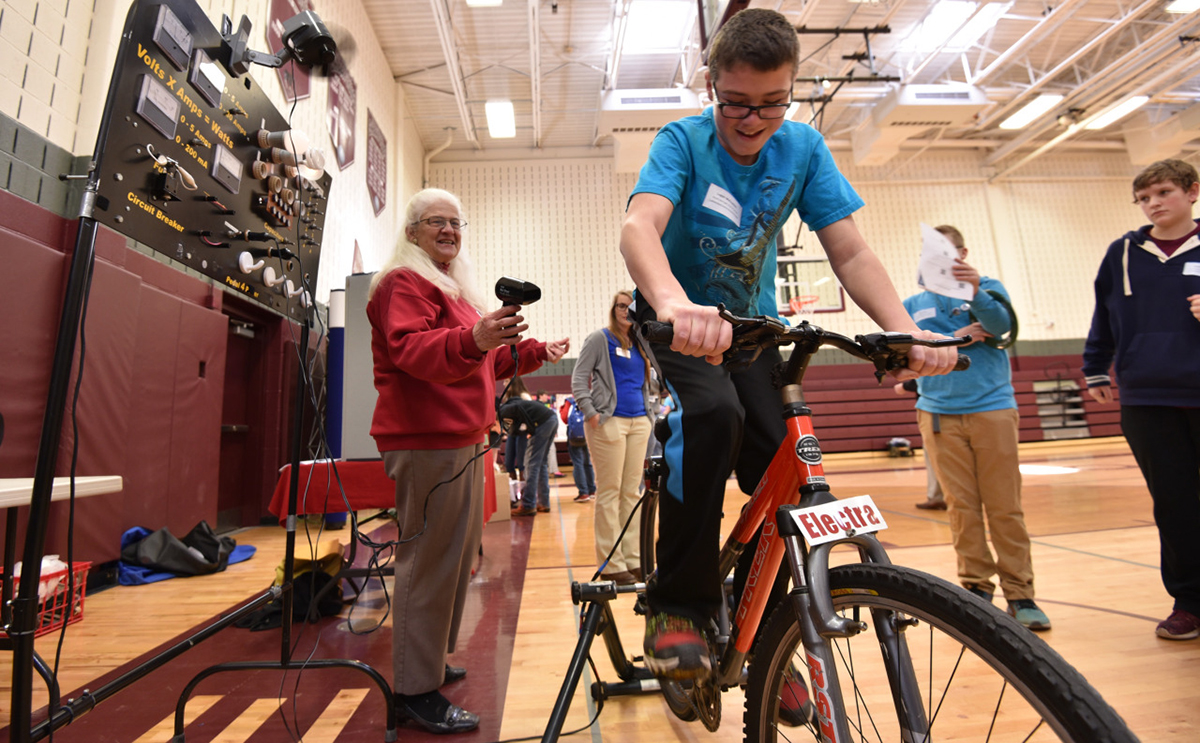Extension trains students to create climate for change
By R.J. Anderson

When 200 teens and preteens from 16 school districts in southeastern New York first walked through the doors of Delaware Academy in Delhi, New York, for the inaugural Catskills Youth Climate Change Summit March 11, many knew very little about the triggers of climate change and how to counteract them.
However, when they boarded their return buses at day’s end, each student did so armed with an enhanced tool box for decreasing their schools’ environmental impact – and a plan to do it.
Organized by Cornell Cooperative Extension of Delaware County and sponsored by The Catskill Watershed Corp. and The Wild Center, a not-for-profit science-based environmental learning center in Tupper Lake, New York, the one-day conference catering to students from grades 7-12 featured workshops, speakers, poster sessions and a hands-on expo focused on energy efficiency and environmental awareness.
Kicking off the event was a keynote address from Paul Smith’s College professor Curt Stager on the consequence of climate change and the importance of pursuing actionable change on a personal and community level. Then, after a day packed with science-based learning opportunities, the event culminated with presentations delivered by student teams, which traveled from as far away as New York City, on environmental action plans they would take back to their schools.
One by one, team leaders stood in a packed auditorium and shared the real-world solutions they planned to pursue. Ideas included initiating a monthly garbage pickup, promoting LED light bulb usage, rebuilding a campus greenhouse, starting an environmental club, and speaking to their school boards about ideas for improving the campus’s carbon footprint.
The idea for the event was conceived at an environmental education conference for schoolteachers hosted by CCE Delaware last summer. In planning the event, Jeanne Darling, CCE Delaware executive director, said the Catskills organizers relied heavily on a model used by the Adirondacks Youth Climate Change Summit, which is organized by The Wild Center and heading into its eighth rendition this November. The Wild Center also provided peer mentorship through the Adirondack Youth Workshop, teens who shared tips and insight into their past and present school and community-based action plans.
Though The Wild Center’s support and consultation played a big part in the Catskills Summit’s success, Darling feels that having area students at the planning table was just as important.
“We decided early on to involve students in our advisory group, and it was the best thing we could have done,” she says. “Once the students came aboard, we kind of let them drive the curriculum’s direction, and they really stepped up and took ownership of the summit. It was fantastic to watch. Of the eight workshops, four were designed and presented by students.”
With the 2016 event now in the books, Darling and her team are looking forward to doing it again next year.
“The summit is a perfect fit for Cooperative Extension’s mission of youth development and leadership,” she says. “We’re hoping that every student who attended will continue to build on what they learned. We’re also hoping each school comes back next year and shares the results of their action plans. Based on what we saw, we think they will make a significant impact in their communities.”
R.J. Anderson is a communications specialist/staff writer for Cornell Cooperative Extension.
Media Contact
Get Cornell news delivered right to your inbox.
Subscribe